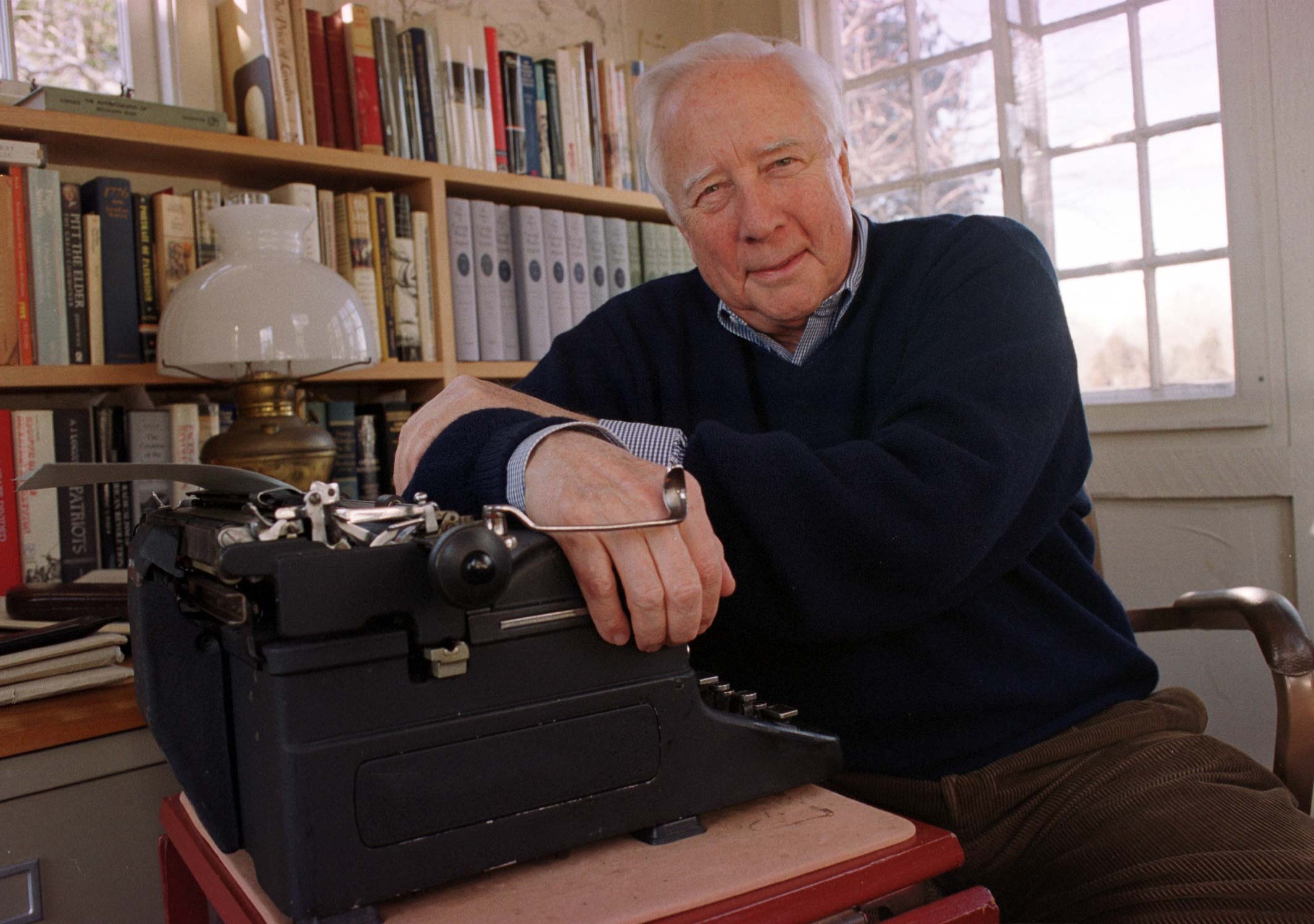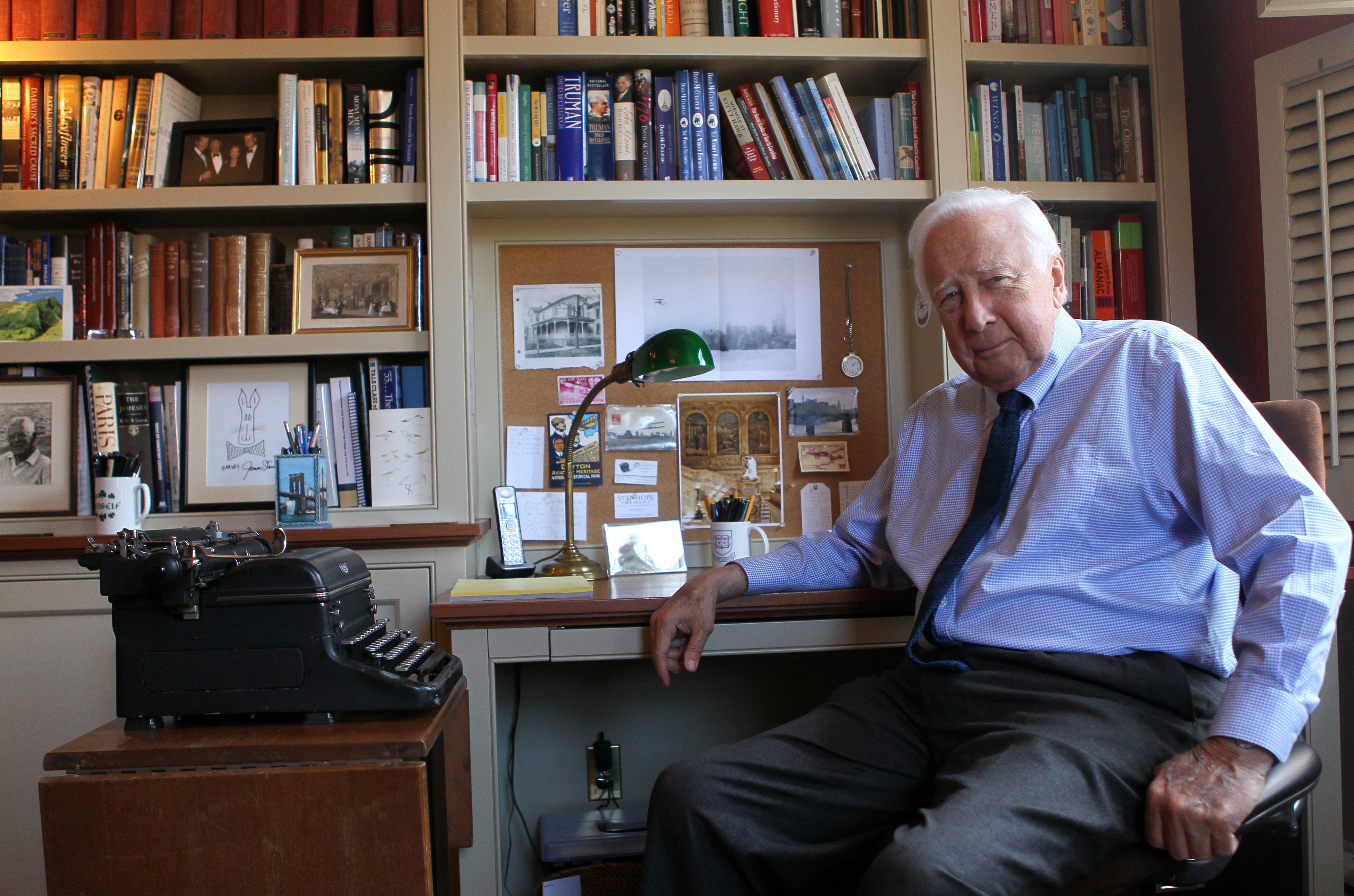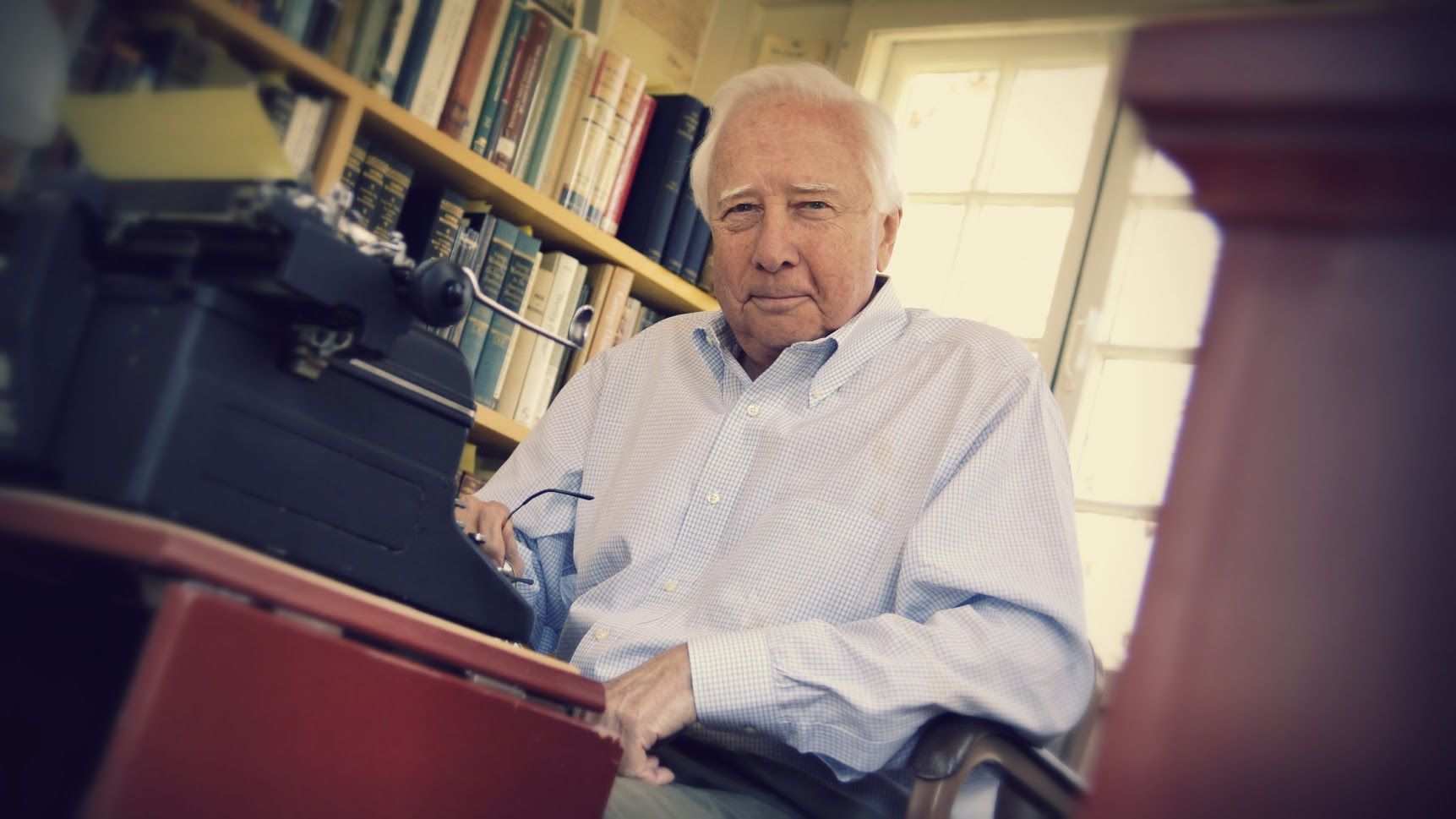David McCullough, a name that truly resonates with anyone who appreciates a good story, especially when that story is about the very real people and moments that shaped a nation, was someone who brought history to life for countless individuals. His way of writing, you know, it just drew you in, making past events feel immediate and the figures from long ago seem like folks you could almost know. He had a gift for making even the most complex historical accounts feel accessible and genuinely interesting, almost like sitting down with a favorite grandparent who just happens to know everything about everything, basically.
For so many years, David McCullough held a special place in the hearts of those who loved learning about American history, and not just the dry facts, either. He was a writer, yes, and a historian, but he was also a wonderful storyteller, someone who could take events from a long time ago and make them feel fresh and relevant, even today. It's really quite something, when you think about it, how he could take what might seem like old news and turn it into something that felt so current and important, still.
His work, in a way, offered a clear window into the lives of people who lived long before us, showing us their struggles, their triumphs, and the choices they made that still affect us now. He had a knack for finding the human side of history, making sure we saw the individuals behind the big events. So, his contributions went beyond just writing books; he helped a whole lot of people connect with their own past, giving them a richer picture of where we all come from, you know, and how things came to be.
Table of Contents
- Biography of David McCullough
- Personal Details of David McCullough
- What Made David McCullough's Stories So Engaging?
- How Did David McCullough Shape Our View of David McCullough's History?
- Which Works Show David McCullough's Skill Best?
- The Legacy of David McCullough's Narrative Art
- How Did David McCullough's Books Reach So Many People?
- Recognizing David McCullough's Contributions
Biography of David McCullough
David Gaub McCullough, whose name is often spoken with a certain respect by those who cherish well-told historical accounts, was, in essence, a true master of bringing the past to life. He was, as a matter of fact, an American writer, a narrator whose voice became quite familiar to many, a historian who dug deep into records, and a lecturer who shared his findings with eager audiences. His approach to historical writing was, you know, pretty much unmatched, earning him some truly significant recognition for the way he spun tales of bygone eras. He had a way of making history feel less like a school lesson and more like a captivating conversation, which is something quite special.
For a good twelve years, David McCullough was the welcoming face and voice for "American Experience," a popular television series that explores different parts of the nation's past. This role, in a way, allowed him to share his passion for history with an even broader audience, beyond just the pages of his books. It’s almost as if he was inviting everyone into a shared conversation about where we come from, making complex historical moments feel, you know, pretty easy to grasp and genuinely interesting for viewers of all sorts. His presence there, it really added a layer of warmth and trustworthiness to the stories being told, making the past feel very much alive.
Personal Details of David McCullough
| Full Name | David Gaub McCullough |
| Known As | Master of the Art of Narrative History |
| Professions | Writer, Narrator, Historian, Lecturer |
| Notable Recognition | Two Pulitzer Prizes, Two National Book Awards |
| Year of Passing | Died at the age of 89 |
What Made David McCullough's Stories So Engaging?
You might wonder, what was it about David McCullough's work that made so many people gravitate towards his books and presentations? Well, it wasn't just that he wrote about important moments in American history; it was how he did it. He was an American historian whose biographical accounts, you know, were put together with an incredible amount of careful investigation. These books, while being very well-received by the general public, also earned high marks from those who judge literary works. It's pretty rare, really, to have writing that is both widely loved and highly respected by experts, but his was just that. He had a way of digging into the past with such thoroughness, making sure every detail was considered, yet presenting it all in a way that felt, well, truly readable and exciting.
His writing style was, in a way, what set him apart. He didn't just list facts or dates; he crafted narratives that pulled you right into the lives of the people he was writing about. So, he wrote about American history in a way that was both far-reaching and deeply compelling. He had a remarkable ability to take what might seem like dry historical records and transform them into vivid, human tales. It was almost as if he was there, experiencing these moments alongside the figures he described, and then relaying them back to us with all the drama and emotion intact. This approach, you know, made his books feel less like textbooks and more like really good novels, full of interesting characters and pivotal moments.
And, you know, it's not just about the words on the page. His voice, when he narrated, had a certain quality that made you want to listen, too. It was a calm, reassuring voice that made even the most complicated historical explanations feel clear and easy to follow. This combination of deeply researched content and a truly captivating presentation style is, I think, what made his work so widely cherished. He really understood how to connect with people, making them care about figures and events from long ago, which is pretty special.
How Did David McCullough Shape Our View of David McCullough's History?
So, how did a single person, David McCullough, manage to influence how so many of us look at the past? It really comes down to his dedication to showing the human side of history. He didn't just present a collection of events; he presented lives. His biographies, for instance, gave us a chance to see figures like presidents not as distant statues, but as people with their own thoughts, feelings, and challenges. He had this remarkable talent for getting to the core of who these individuals were, what drove them, and how they reacted to the circumstances of their time. This perspective, basically, allowed readers to feel a personal connection to history, rather than just observing it from a distance.
He was, in some respects, a master at showing the cause and effect of historical moments through the eyes of those who lived them. By focusing on individual experiences and decisions, he helped us see how larger historical movements were actually shaped by personal choices and everyday occurrences. This method, you know, made history feel less like an abstract concept and more like a series of unfolding dramas, each with its own set of characters and turning points. It’s almost like he invited us to walk alongside these historical figures, experiencing their world as they did, which is a pretty powerful way to learn.
Moreover, his insistence on thorough investigation meant that his accounts were built on a solid foundation of facts, yet they never felt dry. He had this knack for finding the interesting details, the little anecdotes that truly brought a person or an era to life. This careful approach, combined with his skill for storytelling, ensured that his work was not only enjoyable to read but also incredibly reliable. So, in a way, he taught us that history isn't just about what happened, but about the people to whom it happened, and that's a pretty profound lesson.
Which Works Show David McCullough's Skill Best?
When you think about David McCullough's body of work, there are a couple of his creations that really stand out as shining examples of his particular talents. His notable pieces of writing included the book about President Truman, which came out in 1992, and the one about John Adams, published in 2001. These two books, in particular, are often mentioned when people talk about his most impactful contributions to historical writing. They are, you know, pretty much considered classics in their field, and for good reason, too.
It's pretty amazing, when you think about it, that two of his really big books, the ones that earned him those special writing awards, were actually brought to life on television. I mean, `John Adams`, which is that one about the early American leader, and `Truman`, the book about the president, well, they weren't just read by people. They actually became, you know, these big TV shows, like films and even longer series, all thanks to HBO. It just goes to show, in a way, how much his stories resonated with people, enough for them to want to see them acted out on screen, too. It's almost like his words just jumped off the page and onto the screen, isn't it?
This transformation from written history to a visual narrative, well, it speaks volumes about the lasting impact and broad appeal of his work, basically. You know, to have a major network like HBO pick up not just one, but two of your historical accounts for such significant productions, that's really quite a statement about the caliber of the storytelling. It means that the tales he spun, about these very real people and moments from the past, they were considered compelling enough, and truly engaging enough, to warrant such a grand presentation for a wide audience. So, it wasn't just for history buffs, but for everyone who enjoys a good story, you could say. And, in some respects, that reach, that ability to connect with so many different kinds of viewers, that's a pretty special thing for a writer to achieve, I think.
The Legacy of David McCullough's Narrative Art
David Gaub McCullough, who was widely recognized as the 'master of the art of narrative history,' left behind a truly significant mark on how we approach and appreciate the past. His unique way of telling historical stories, you know, wasn't just about relaying facts; it was about weaving them into compelling human dramas. He had this incredible ability to make historical figures feel like characters in a very engaging novel, yet always grounded in careful investigation and factual accuracy. This blend of precise research and captivating storytelling is, in a way, his enduring contribution to the field.
His approach to writing history was, you know, pretty much one of a kind. He didn't just tell us what happened; he told us why it mattered, and how it felt to be there. He brought a sense of humanity and immediate experience to events that might otherwise seem distant and abstract. This commitment to narrative, to telling a good story while staying true to the facts, is what earned him such a devoted following and so much respect from his peers. It’s almost as if he invited us to step back in time, to witness history unfolding with our own eyes, which is a pretty powerful thing for a writer to do.
So, the legacy of David McCullough's narrative art is, basically, a reminder that history isn't just a collection of dates and names. It's a rich tapestry of human experiences, filled with triumphs and setbacks, courage and fear, and all the complexities of real life. His work encourages us to look beyond the headlines and truly understand the people who shaped our world, which is, you know, a very valuable lesson for anyone interested in the past.
How Did David McCullough's Books Reach So Many People?
It's fair to ask, how did David McCullough's books manage to connect with such a broad audience, becoming so popular and widely read? Part of it, as we talked about, was his skill in making history feel alive and personal. But it was also about the sheer quality of his work, which was recognized with some of the most respected literary awards. He won the Pulitzer Prize, a very important award for writing, not just once, but twice. And, you know, he also received the National Book Award two times, too. These are pretty big deals in the world of books, and winning them multiple times is a clear sign of truly exceptional writing.
These awards, in a way, helped to shine a light on his books, drawing even more readers to his work. When a book receives such high honors, it naturally garners more attention and encourages people who might not typically pick up a history book to give it a try. So, it wasn't just his engaging writing style, but also the critical acclaim that played a big part in his widespread appeal. It's almost like these accolades confirmed what many readers already felt: that his books were something truly special, worth everyone's time and attention.
And, you know, the fact that his books were so well-researched, yet so readable, meant that they appealed to both serious students of history and casual readers looking for a good story. This dual appeal is, I think, a testament to his unique talent. He managed to bridge the gap between academic scholarship and popular storytelling, making history accessible and enjoyable for a very wide range of people, which is pretty impressive, actually.
Recognizing David McCullough's Contributions
When we look back at David McCullough's life and work, it's clear that his contributions went far beyond simply writing books. He was, in essence, a tireless advocate for history, someone who believed deeply in its power to inform and inspire. He consistently showed us that the past isn't a dusty collection of facts, but a vibrant and continuous story that shapes who we are today. His ability to bring that story to life, making it feel immediate and relevant, is, you know, a truly remarkable achievement.
He was a person who dedicated his life to helping others understand the richness and complexity of American history. Through his words, both written and spoken, he introduced countless individuals to figures and events that might otherwise have remained distant or forgotten. His impact, in a way, can be seen in the renewed interest in historical biographies and the appreciation for well-crafted narrative accounts. It's almost as if he reminded us all that the past is not just something to be studied, but something to be experienced and understood on a deeply human level.
So, his legacy is not just in the pages of his celebrated books or the awards he received, but in the minds and hearts of the many people he touched. He encouraged a deeper curiosity about where we come from and a greater appreciation for the individuals who walked before us. That, I think, is a pretty wonderful gift to leave behind, don't you?


